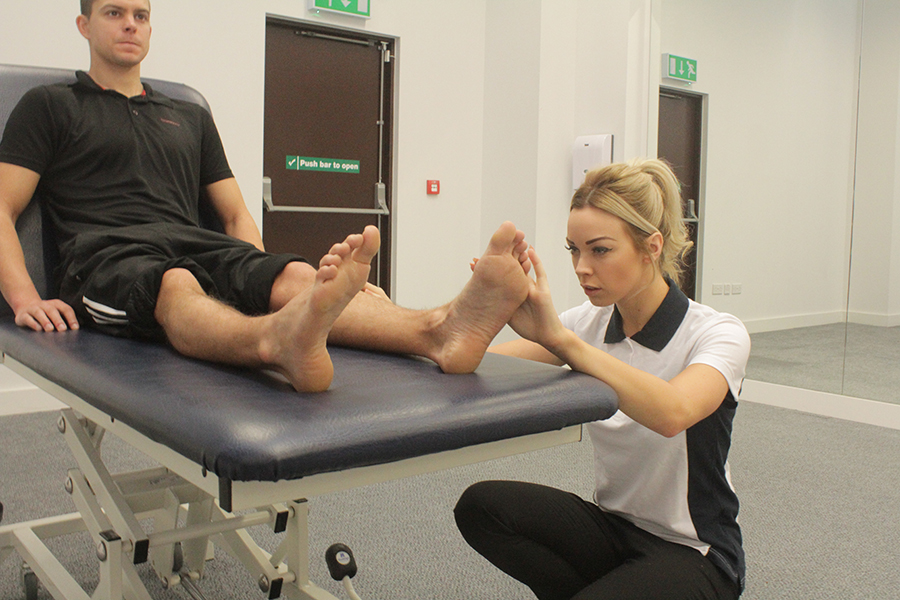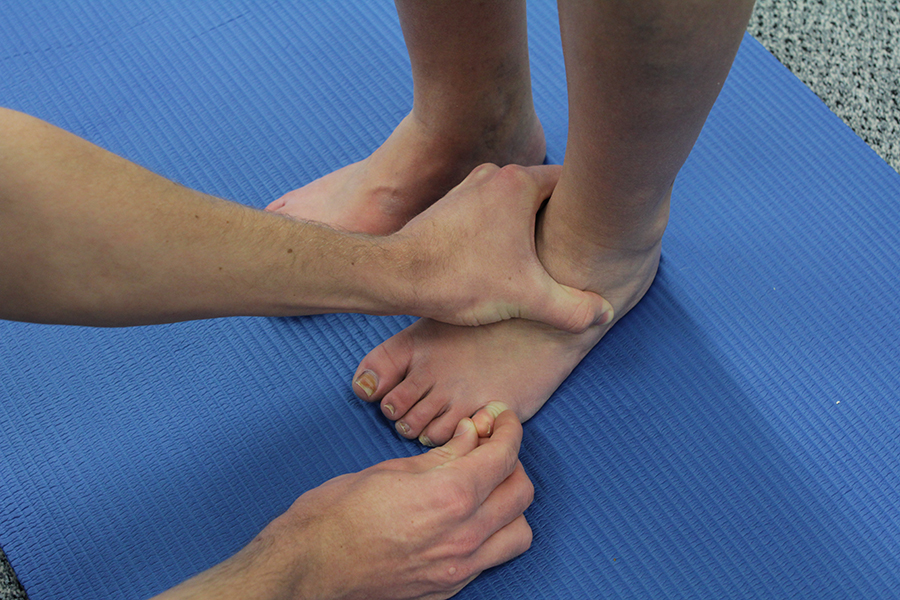Tailors bunion
A tailor's bunion is a bunion that appears at the little toe joint, this is where the fifth metatarsal meets the little toe. Just like a regular bunion, a tailor's bunion can be very painful and is often inflamed. It is a common complaint of those who have broad feet.
If you think you have a tailor's bunion it is important to visit a podiatrist. This is because a tailor's bunion is a progressive condition: this means that it will get worse over time.
A tailors bunion, or 'bunionette' as it is also known is an enlargement of the fifth metatarsal head. The fifth metatarsal is a long bone that comes from the middle of the foot and meets at the little toe, each foot has five metatarsals. The enlargement means that the area can become painful, due to the pressure from footwear rubbing against the bunion. It is called a tailor's bunion because years ago it was a condition often seen in tailors, who sat on the floor crossed legged when doing their work. This seated position meant that the outside of their foot was in constant contact with the ground, which led to a painful bump where the fifth metatarsal met the little toe.
There are a variety of causes that can lead to the development of a tailor's bunion, and these include:
The signs and symptoms of a tailor's bunion are not that dissimilar to those of a regular bunion at the big toe joint (hallux abducto valgus) and include:
Diagnosis for a tailor's bunion is based on the physical signs and symptoms. Clinical observation is usually all that is necessary.

If you have a tailor's bunion Chiropody.co.uk can help you, and following appropriate treatment and advice you can expect to achieve the following benefits:
Podiatry for a tailor's bunion would consist of a thorough medical history, which along with an examination of the area and footwear assessment would lead to a diagnosis.
If poor biomechanics are a cause then you may be referred for a Biomechanical assessment.
Treatment for a tailor's bunion may include:

A tailor's bunion (also known as a bunionette) is an enlargement of the fifth metatarsal head. A tailor's bunion can become inflamed as a result of the constant rubbing from footwear, which can be very painful. If you think you have a tailor' bunion it is important to visit a podiatrist, as it is a progressive condition, this means that it will get worse over time. However early intervention can in many cases prevent this.
To arrange an assessment with one our podiatrists please email office@chiropody.co.uk or call 0330 088 4222.
If you think you have a tailor's bunion it is important to visit a podiatrist. This is because a tailor's bunion is a progressive condition: this means that it will get worse over time.
What is a tailor's bunion?
A tailors bunion, or 'bunionette' as it is also known is an enlargement of the fifth metatarsal head. The fifth metatarsal is a long bone that comes from the middle of the foot and meets at the little toe, each foot has five metatarsals. The enlargement means that the area can become painful, due to the pressure from footwear rubbing against the bunion. It is called a tailor's bunion because years ago it was a condition often seen in tailors, who sat on the floor crossed legged when doing their work. This seated position meant that the outside of their foot was in constant contact with the ground, which led to a painful bump where the fifth metatarsal met the little toe.
What causes a tailors bunion?
There are a variety of causes that can lead to the development of a tailor's bunion, and these include:
- Poor biomechanics
- Arhridities (e.g. gout, osteoarthritis, rheumatoid arthritis)
- Increased curvature of the fifth metatarsal
- An enlarged fifth metatarsal head
- Broad feet
What are the signs and symptoms of a tailor's bunion?
The signs and symptoms of a tailor's bunion are not that dissimilar to those of a regular bunion at the big toe joint (hallux abducto valgus) and include:
- A painful lump at the little toe joint on the outside of the foot
- Redness and swelling
How is a tailor's bunion diagnosed?
Diagnosis for a tailor's bunion is based on the physical signs and symptoms. Clinical observation is usually all that is necessary.

Benefits of podiatry for a tailor's bunion
If you have a tailor's bunion Chiropody.co.uk can help you, and following appropriate treatment and advice you can expect to achieve the following benefits:
- Improvement in foot function
- Prevention of deterioration of symptoms
- Improvement in comfort
- Decrease in pain
- Decrease in inflammation
- Appropriate referral (if necessary)
What would podiatry for a tailor's bunion involve?
Podiatry for a tailor's bunion would consist of a thorough medical history, which along with an examination of the area and footwear assessment would lead to a diagnosis.
If poor biomechanics are a cause then you may be referred for a Biomechanical assessment.
Treatment for a tailor's bunion may include:
- Anti-inflammatory advice
- Padding
- Silipos
- Orthoses
- Footwear review
- Surgery

Summary
A tailor's bunion (also known as a bunionette) is an enlargement of the fifth metatarsal head. A tailor's bunion can become inflamed as a result of the constant rubbing from footwear, which can be very painful. If you think you have a tailor' bunion it is important to visit a podiatrist, as it is a progressive condition, this means that it will get worse over time. However early intervention can in many cases prevent this.
To arrange an assessment with one our podiatrists please email office@chiropody.co.uk or call 0330 088 4222.
Save 5% by booking an appointment online.

Find your nearest clinic
We have clinics located throughout the North West. We also provide a home visit service.
Find out more »

No waiting lists!
Tired of waiting for treatment? Be seen by a podiatrist today!
Find out more »

Not sure how we can help?
Speak to a podiatrist to find out how we can help. Call us on 0330 088 4222.
Find out more »
We work with:

Individuals

Organisations

Health professionals
Get in Touch!
0330 088 4222
If you would like to speak to one of our specialists then please complete this form.
We are open 7 days a week








